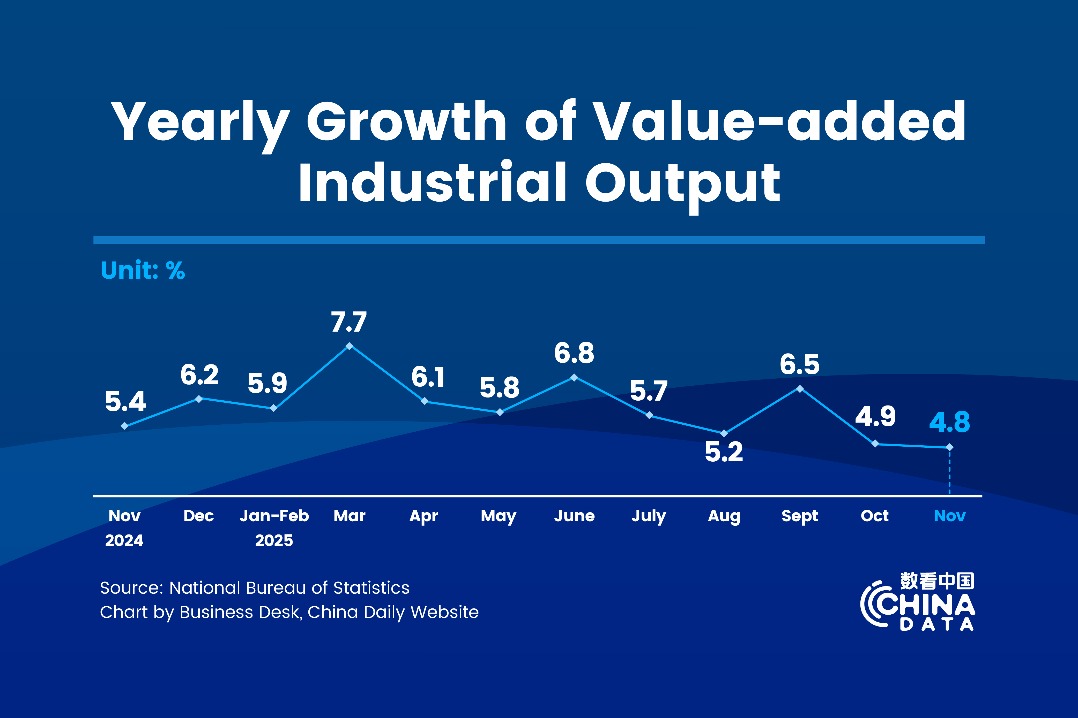Autonomous driving taxis taking market by storm


Autonomous driving vehicles may sound like science fiction, but they are racing into our daily lives sooner than many expected. Nowadays, people can hail robotaxis by using ride-hailing apps on their mobile phones in some designated areas of Wuzhen, Zhejiang province.
All they need to do is to input pickup and drop-off points and the number of passengers and — voila! — a self-driving taxi approaches — with a safety operator sitting behind the steering wheel to monitor the vehicle for ultimate safety.
The vehicle runs smoothly and is capable of fully recognizing stop signs as it automatically decelerates before finally coming to a halt. As traffic lights change from red to green, the taxi proceeds through the intersection.
Thanks to continuous technological innovations and policy support, China has made steady strides in the autonomous driving sector. Baidu, which has morphed into a tech pioneer with a focus on artificial intelligence, started providing self-driving taxi services in Wuzhen since March 26 in a bid to accelerate the large-scale commercialization of driverless vehicles.
The service provided by Baidu's Apollo Go includes 112 pickup and drop-off stations in the early stages in Wuzhen. Passengers can use the service from 9 am to 5 pm through one click/tap on the Apollo Go App.
The company launched its self-driving vehicles at the second World Internet Conference in Wuzhen in December 2015, and carried out tests for its autonomous cars on open roads in Jiaxing, where Wuzhen township is located, in 2016.
Last December, Baidu officially opened its Apollo Park in Wuzhen, which serves as an important R&D, design, application and testing base for autonomous vehicles in the Yangtze River Delta region.
The move is expected to lay a technical foundation for Wuzhen to build an intelligent driving public transportation system, and promote the transformation and upgrading of the autonomous driving industry in Zhejiang province, experts said.
As the fourth demonstration base for intelligent-connected vehicles built by Baidu in China, the park is equipped with facilities such as a vehicle-road coordination system, remote vehicle control platform, operation center and 5G-powered cockpit control system. The company has already launched such parks in Beijing, Shanghai and Guangzhou, Guangdong province.
As autonomous driving technology continues to mature, the sector is poised to consolidate in the coming years. Market consultancy IHS Markit said the size of the autonomous car service market will exceed 1.3 trillion yuan ($178.5 billion), with the top-ranked service provider accounting for 40 percent of total market share.
Baidu plans to expand Apollo Go services to 65 cities in 2025, and 100 in 2030, said Robin Li, cofounder and CEO of the company. "The massive cost reduction will enable us to deploy tens of thousands of autonomous vehicles across China. We are moving toward a future where taking a robotaxi will be half the cost of taking a taxi today."
The intelligent transportation infrastructure based on the vehicle-road coordination system is expected to improve traffic efficiency by 15 to 30 percent and contribute to 2.4 percent to 4.8 percent of absolute GDP growth, Li added.
So far, Baidu Apollo's L4 autonomous vehicles have run more than 36 million kilometers, with 718 autonomous driving permits in China, including 571 for carrying passengers. L4 autonomy means the vehicle can drive by itself under most circumstances, without a human backup driver.
Baidu Apollo has rolled out robotaxi ride-hailing services in more than 10 cities, including Beijing, Shanghai, Guangzhou and Shenzhen, Guangdong province.
Continuous testing on public roads, easing regulations as well as cost reductions in autonomous vehicle manufacturing will help accelerate the deployment and commercialization of self-driving cars, said Lyu Jinghong, an intelligent mobility analyst at research firm BloombergNEF, who expects robotaxis to significantly ramp up in the 2030s and China to have the world's largest robotaxi fleet by 2040.
Yang Diange, a professor from the School of Vehicle and Mobility at Tsinghua University, said the commercial operation of self-driving vehicles will promote the iteration and innovation of technologies, and help enterprises explore reasonable business models, thus allowing autonomous driving technologies to create more value.



































